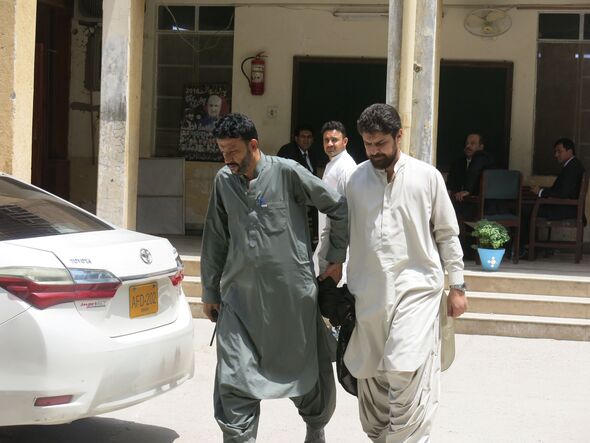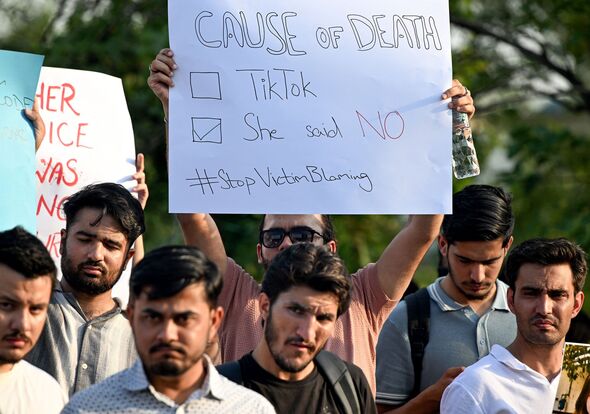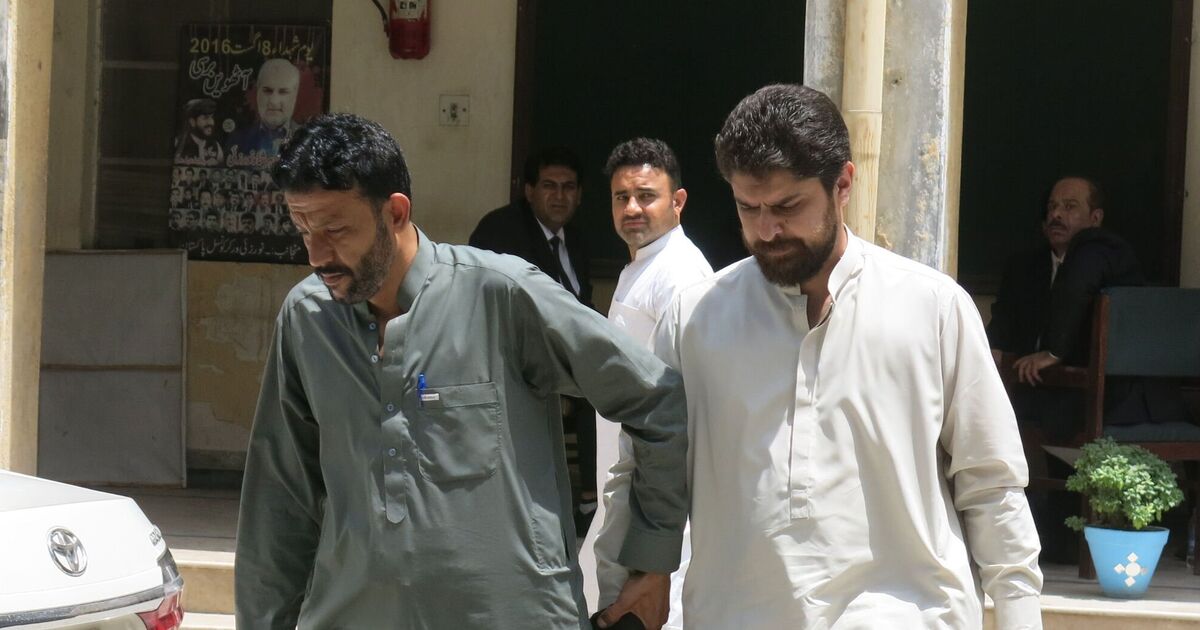
Police escort Sherbaz Satakzai (right) as he heads to court in Quetta, Pakistan (Image: FAYYAZ AHMED/EPA/Shutterstock)
A couple in Pakistan were fatally shot in a so-called honor killing, with a video of the horrific incident going viral on social media, authorities have said.
The disturbing footage caused uproar in parts of the country, with activists demanding swift justice and a stop to this type of killings, where family allegedly members target women who don’t follow local traditions and culture or decide to marry someone of their choosing.
The video, which surfaced over the weekend, shows a man shooting the young couple at close range in daylight as others stood by.
Police confirmed the authenticity of the footage, saying the killings happened in the Deghari district in the province of Balochistan, according to Chief Minister Sarfraz Bugti.
In the horrific clip, several men arrive in pickup trucks in a mountainous region, and a young woman, speaking the local language, says she is legally married.

Women rights groups protesting in Pakistan (Image: Getty)
She says, “Come, walk seven steps with me, and then you can only shoot me.” It isn’t clear what she meant.
A man follows the woman before taking out a gun and shooting her. After the victim collapses on the ground, the shooter also kills her husband before another man takes out a gun and joins him in shooting the groom.
The video ends with both victims lying bloodied on the ground. The bride and groom were identified by police as Bano Bibi and Ahsan Ullah.
DON’T MISS…
YouTube star strangled by her father in ‘honor killing’ after deciding to leave home
Indian army mobilized as Pakistan ‘kills 3 in Kashmir retaliation’
Warring tribes in Pakistan’s northwest ordered to hand over weapons after deadly clashes
Police have arrested 13 people over the horrific killing and have released the names of some suspects, including that of local tribal leader Sardar Sherbaz Khan.
It is alleged that the killing was ordered after the bride’s brother complained she married without his consent, said police chief Naveed Akhtar. Her brother is among those arrested.
According to first information report (FIR) filed by the police on Monday, Bano and Ehsan were likely killed in May near Balochistan’s capital Quetta.
The provincial government launched the investigation as none of the couple’s family members came forward.
Yesterday, police surgeon Ayesha Faiz said an autopsy conducted after the exhumation of the woman’s body revealed she had been shot seven times. She said the results of the autopsy of the man’s body were still pending.
Prime Minister Shehbaz Sharif spoke with Bugti, urging him to ensure that those responsible for the couple’s killing are brought to justice, according to a government statement.
Honor killings are not uncommon in Pakistan. In January, police arrested a Pakistani man suspected of killing his US-born 15-year-old daughter for refusing to stop posting videos on TikTok, a platform with more than 54 million users in the country.
Farhatullah Babar, a Pakistani human rights activist, said, “The bravery shown by the slain woman is both humbling and remarkable, as she neither begged for her life nor showed any weakness.”
Harris Khalique, general secretary of the Human Rights Commission of Pakistan (HRCP), the country’s leading rights watchdog, said honor killings confirm the “tyranny of medieval practices” still present in many parts of Pakistan.
He told Al Jazeera, “The state, instead of establishing the rule of law and ensure the right to life of its citizens, has protected the tribal chiefs and feudal lords who guard such practices to perpetuate their power over local people and resources.”
Rights activist Sammi Deen Baloch, who is a member of Baloch women’s rights groups, said killing of women has become “a matter of routine” in the province – and claimed the government would not have acted on the murders had the video not gone viral.
She said, “Baloch women are trapped between two forms of violence: the brutality of tribal patriarchy, and the cold repression of the state. One kills in silence, the other kills in the name of law.
“The state’s refusal to democratise Balochistan isn’t accidental. It is policy. By outsourcing governance to feudal strongmen, the state keeps the region controlled, its women disposable, and its dissent criminal.”

